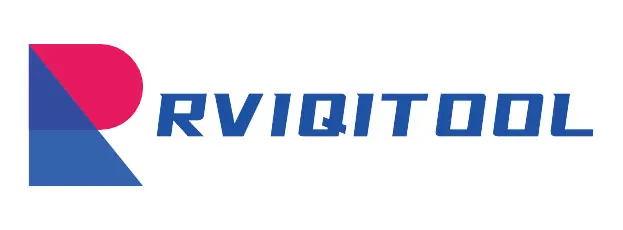In today’s competitive marketplace, sourcing high-quality tools is paramount for global buyers, especially when it comes to specialized equipment such as the Alloy Hole Opener. This essential drilling tool is crucial in various industries, including oil and gas, construction, and manufacturing, where precision and durability are non-negotiable. However, buyers often face a myriad of challenges, from navigating complex supply chains to evaluating the quality and performance of different manufacturers. In this tutorial, we aim to address these challenges by providing practical insights and strategies for sourcing the best Alloy Hole Opener available on the market. By understanding key factors such as material properties, supplier reliability, and performance benchmarks, global buyers can make informed decisions that enhance their operational efficiency and ensure long-term success in their projects.

When sourcing alloy hole openers in global markets, buyers often face significant challenges, primarily due to the abundance of options and varying standards of quality. The first hurdle is identifying reputable suppliers who can provide products that meet industry-specific requirements. With many manufacturers offering similar products, it becomes essential to distinguish between reliable and subpar options.
**Tip 1:** Conduct thorough research on potential suppliers, checking their certifications and past customer reviews. Utilize platforms that aggregate reviews and ratings to gain insights into the quality and reliability of their products.
Another common issue is determining the specific quality characteristics that differentiate high-performance alloy hole openers from lower-quality alternatives. Factors such as material composition, manufacturing processes, and performance ratings play crucial roles in the overall effectiveness of the tool. Understanding these elements can help buyers make informed decisions in a crowded market.
**Tip 2:** Request samples before making bulk purchases to evaluate the product's performance firsthand. Additionally, consult industry experts or technical datasheets to get a clearer understanding of the key specifications to look for. This proactive approach can significantly reduce the risk of procurement mistakes.
As we look ahead to 2025, several key trends are set to reshape the alloy hole opener industry, providing insight into how global buyers can navigate their sourcing challenges. One major trend is the increasing demand for advanced materials that enhance durability and performance. Manufacturers are investing in innovative alloys that not only improve the tool's lifespan but also offer superior resistance to wear and corrosion. This shift towards high-performance materials is crucial as industries such as oil and gas continue to evolve and require more efficient drilling solutions.
Another significant trend is the integration of smart technology into alloy hole openers. The rise of the Internet of Things (IoT) has prompted manufacturers to develop tools equipped with sensors and data analytics capabilities. These advancements allow for real-time monitoring of tool performance, leading to proactive maintenance and reduced downtime. Global buyers need to be aware of these technological innovations to make informed decisions that bolster their operational efficiency. Embracing these trends will be essential for businesses looking to stay competitive in the ever-changing landscape of the alloy hole opener market.
The current landscape of sourcing alloy hole openers presents unique challenges for global buyers, including navigating complex supplier networks and ensuring product quality. In response to these challenges, digital solutions have emerged as vital tools that enhance the sourcing process, enabling buyers to make informed decisions more efficiently. According to a recent report by the Global Sourcing Association, 60% of procurement professionals cite digitalization as a key driver for improving supplier relationships and streamlining workflows.
Utilizing digital platforms allows buyers to access real-time data on market trends and supplier performance, which is crucial in the competitive world of alloy hole opener sourcing. Online marketplaces and supplier management systems can offer insights into pricing, availability, and reviews from other buyers, ultimately reducing the risk associated with sourcing decisions.
**Tip:** Invest in a robust supplier management software that integrates data analytics to monitor supplier metrics effectively.
Moreover, adopting digital collaboration tools can facilitate better communication between buyers and suppliers, enabling quick responses to inquiries and fostering a more agile supply chain. Engaging with innovative digital solutions positions buyers to navigate sourcing complexities with a strategic advantage.
**Tip:** Leverage artificial intelligence tools to analyze historical purchasing data, which can provide predictive insights for future sourcing decisions.
When sourcing alloy hole openers, global buyers face several challenges, including quality assurance, supplier reliability, and compliance with international standards. According to the latest market research by MarketsandMarkets, the global drill bits market, which includes alloy hole openers, is projected to reach $11.7 billion by 2025, indicating a robust demand. To navigate this landscape, buyers must implement effective evaluation practices for suppliers worldwide.
Tips for Evaluation: First, prioritize suppliers who hold relevant industry certifications, such as ISO 9001, which indicates a commitment to quality management. Moreover, request samples to assess the material quality and performance of the alloy hole openers. Examine the supplier’s production capacity and past client testimonials to gauge reliability.
Secondly, consider engaging in direct communication with the suppliers. A proactive dialogue can help clarify technical specifications and ensure that the supplier understands your specific needs. According to a report from Grand View Research, more than 60% of buyers favor suppliers that offer excellent customer support and transparent communication. These practices not only enhance trust but also streamline the procurement process, leading to better collaboration and satisfaction.
In the intricate world of alloy hole openers, industry standards play a crucial role in guiding global buyers toward making informed decisions. These standards not only define the quality and performance benchmarks that products must meet, but they also set the foundational criteria for safety and reliability. By adhering to established standards, manufacturers can assure buyers that the alloy hole openers will perform efficiently even under challenging conditions, thus reducing the risk of operational failures in demanding applications.
Moreover, understanding these industry standards enables buyers to assess the compatibility of various alloy hole openers with their specific projects. For instance, certain materials and designs may be better suited for specific geological formations, and standards provide the necessary guidelines to make these distinctions clear. With the proliferation of options available in the market, familiarity with standards helps buyers narrow down choices effectively, ensuring that their selected tools not only meet performance expectations but also align with regulatory requirements, ultimately streamlining the sourcing process.

